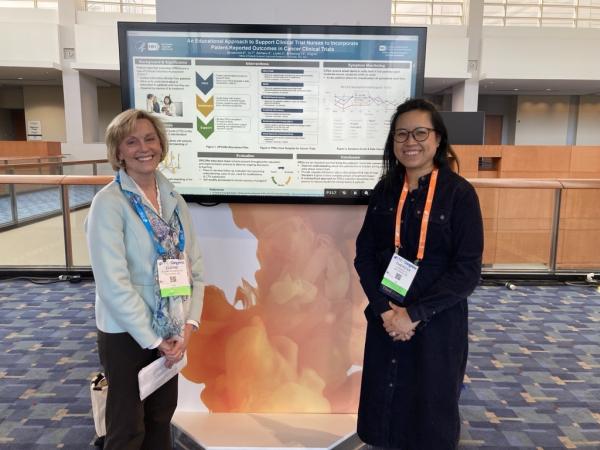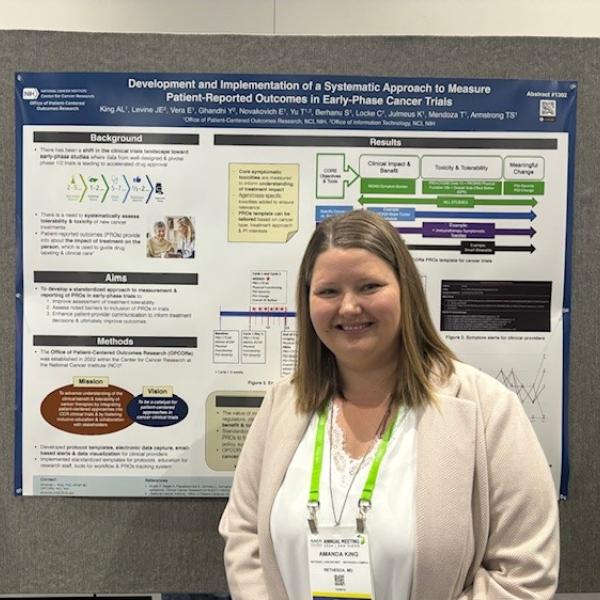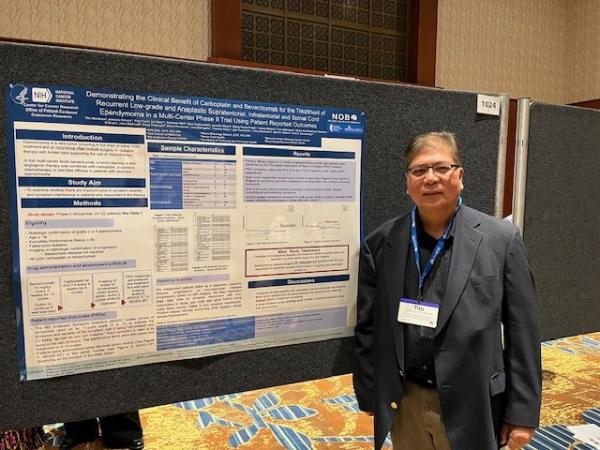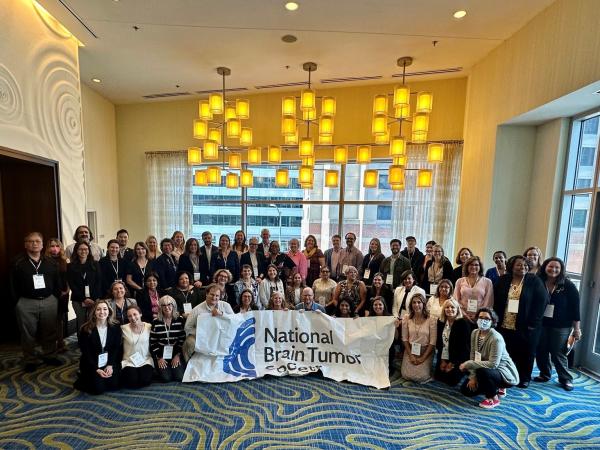Learn about our vision and mission, resources and publications.
Office of Patient-Centered Outcomes Research
Using patient-focused approaches to enhance our understanding of the patient experience
Information for Patients
Learn about why patient-centered outcomes matter.
Spotlight
OPCORe staff presented at the 49th annual Oncology Nurse Society Congress on April 26, 2024 in Washington D.C.
Office of Patient-Centered Outcomes Research
The goal of the Office of Patient-Centered Outcomes Research (OPCORe) is to integrate the voice of the patient, and in particular, the use of patient-centered outcomes into early-phase clinical trials.
What are clinical outcomes assessments?
Patient-centered outcomes assessment starts with an understanding of the impact of a disease and its treatment on patients, and what patients value from a treatment perspective. It measures things that are important to patients, such as how a treatment will affect symptoms and their day-to-day functioning.
Such patient-focused approaches use clinical outcomes assessments (COAs), in which information is gathered on the impact of treatment on the person and can markedly enhance the understanding of the patient experience in cancer clinical trials.
COAs can broadly be classified into four distinct groups based on how data is collected:
- PROs – patient-reported outcomes
- ClinROs - information gleaned from clinical observation
- ObsROS - other observer reported outcomes (ObsROs),
- PerfOs - and data from performance on a task or test (PerfOs)
In cancer-related clinical trials, regulatory agencies and advocacy groups increasingly encourage using PROs to describe the clinical benefit of a therapeutic regimen.
This includes using information on disease-associated symptoms or functions to help determine treatment efficacy and understand treatment-associated side effects. These measures, which collect information directly from the patient, without interpretation by somebody else, improve researchers’ understanding of the patient perspective on the treatment’s impact.
Why are patient-centered outcomes important?
Regulators, clinicians and patients need meaningful information about a treatment’s benefits and risks in order to make important treatment decisions.
Additionally, these measures also provide valuable insights about the impact of the disease and its treatment that help improve patient care even when the treatment does not turn out to have sufficient activity against the cancer.
Why are patient-centered outcomes important in early-phase trials?
There has been a shift in the clinical trial landscape towards early-phase studies, where data from well-designed and pivotal phase I/II trials increasingly leads to accelerated drug approval.
Early-phase clinical trials primarily investigate toxicity and tolerability. Standard toxicity assessments provide only limited or inadequate information. Patient-focused approaches using COAs to gather information about the impact of treatment on the person, not only the tumor, would markedly enhance the understanding of the patient experience in these trials.
Standardizing and incorporating PROs into earlier phase trials would allow them to be optimized, improve study design and allow more rigorous and systematic assessment of PROs in later-phase trials.
These more systematic PRO designs may then increase the chance of a PRO being incorporated into a product’s label. That could ultimately empower patients, caregivers, and healthcare providers to make more informed treatment decisions leading to better outcomes and better quality of life for patients.

For Researchers
We look forward to collaborating with researchers at different institutions.

For Patients and Advocates
Learn about how we are adding the voice of the patient into early-phase cancer clinical trials.

For Trainees and Trainers
Our postbac fellows receive strong mentoring as they work with our multidisciplinary research teams. Learn more about opportunities to incorporate PROs into clinical research training.
News & Events
OPCORe staff presented at the 49th annual Oncology Nurse Society Congress on April 26, 2024 in Washington D.C.
05/01/2024 - Elaine Novakovich and Theresa Yu attended the annual Oncology Nursing Society meeting held in Washington D.C. on April 24-27. 2024. They presented a poster on the educational program our OPCORe team developed to support the clinical trial nurses incorporate Patient Reported Outcomes (PROs) in early-phase clinical trials at the NCI/CCR. With PROs as an emerging important topic in cancer trials, there was a lot of interest and discussion generated from the presentation.
Dr. Amanda King attended the 2024 AACR Annual Meeting in San Diego
Administering selected subscales of patient-reported outcome questionnaires to reduce patient burden and increase relevance
01/24/2024 - Dr. Mendoza together with a group of experts in measurement, drug development, patient advocacy, and scientific and regulatory matters discussed ways to administer a subset of questionnaire items rather than the full questionnaire while maintaining the validity of the results. In this paper, it is the group’s position that, under certain conditions and with a rigorous selection process, it is acceptable and even preferable to use a subset of questions in patient-reported outcome measures in clinical trials. Learn more
International Society for Quality of Life Research held their annual meeting on October 18-21, 2023 in Calgary, Canada
10/24/2023 - Dr. Mendoza presented the favorable patient-reported symptoms associated with the use of carboplatin and bevacizumab in the treatment of recurrent low-grade and anaplastic supratentorial, infratentorial and spinal cord ependymoma at the annual meeting of the International Society for Quality of Life Research held in Calgary, Canada on October 18-21, 2023. Patients who received the treatment in this multi-center Phase II trial reported improvement in cognitive and neurological symptoms.
Dr. Tito Mendoza attended the Quality of Life Roundtable hosted by the National Brain Tumor Society
09/26/2023 – As a stakeholder, Dr. Tito Mendoza attended the Quality of Life Roundtable hosted by the National Brain Tumor Society. More than 60 pediatric & young adult patients, caregivers, and stakeholders across the brain tumor community attended the roundtable to examine the unique needs, priorities, and challenges faced by patients with brain tumors and their loved ones.
Team
OPCORe Team
Internal Advisors
External Advisory Board
Contact
Have questions or need additional information?
Please send an email to CCR.OPCORe@mail.nih.gov
Building 82, Room B03A
9030 Old Georgetown Road
Bethesda, MD 20892-1750
E-fax: 301-480-5529
























